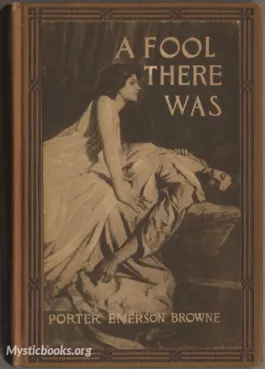
Timeline
Title
Country/Nationality
Porter Emerson Browne
Porter Emerson Browne, born on June 22, 1879, in Beverly, Massachusetts, was an American playwright who left an indelible mark on the world of theatre. His works, characterized by their wit, humor, and poignant observations of human nature, continue to entertain and inspire audiences today.
Browne's passion for theatre ignited during his early years at Harvard University, where he actively participated in the Dramatic Club and wrote his first play, "A Fool's Paradise." After graduating in 1901, he embarked on a career as a playwright, penning numerous plays that quickly gained recognition for their originality and charm.
Principles and Philosophy
Throughout his career, Browne adhered to a set of principles that guided his creative endeavors. He believed in the power of theatre to reflect society's complexities, to challenge social norms, and to offer catharsis through humor and laughter. His plays often explored themes of love, loss, ambition, and the human condition, all while maintaining a lighthearted and entertaining tone.
Browne's philosophy of playwriting was deeply rooted in the belief that theatre should be accessible and engaging for a wide audience. He rejected the notion of "highbrow" theatre, preferring to create works that resonated with the everyday experiences of ordinary people. His plays were often set in familiar settings, filled with characters that audiences could relate to, making them immensely popular among both critics and theatregoers.
Notable Works and Fame
Browne's most celebrated plays include "A Fool's Paradise" (1906), a lighthearted comedy about a man who feigns insanity to escape the pressures of society; "The Fair and the War Bride" (1907), a romantic comedy set during the American Civil War; and "The Bad Man" (1910), a western melodrama that explored themes of good versus evil.
Browne's plays were not only critically acclaimed but also commercially successful, enjoying long runs on Broadway and across the country. His popularity soared during the early 20th century, establishing him as one of the most prominent playwrights of his era.
Legacy and Remembrance
Porter Emerson Browne's legacy lies in his significant contributions to American theatre. His plays, filled with humor, social commentary, and insights into human nature, continue to be staged and enjoyed by audiences worldwide. His commitment to creating accessible and entertaining theatre has inspired generations of playwrights and theatre enthusiasts.
Browne passed away on September 20, 1934, leaving behind a remarkable body of work that continues to enrich the world of theatre. His plays remain a testament to his wit, his understanding of human nature, and his enduring passion for the art of storytelling.
Interesting Facts About Porter Emerson Browne
- Browne was a skilled golfer and won several amateur championships.
- He was a prolific writer, producing not only plays but also short stories, essays, and articles.
- He was a strong advocate for the development of American theatre and served on the board of directors of several theatre organizations.
- His plays have been translated into numerous languages and performed in countries around the world.
- He was inducted into the American Theatre Hall of Fame in 1994.
Porter Emerson Browne's life and work embody the spirit of American theatre, a vibrant and diverse art form that continues to captivate audiences worldwide. His plays remain a cherished part of the theatrical repertoire, offering timeless entertainment and insightful reflections on the human condition.
Books by Porter Emerson Browne

A Fool There Was
In "A Fool There Was" by Porter Emerson Browne, the glittering world of high society conceals a dark and alluring secret. The tale begins with a magnetic hook, drawing readers into a seductive dance of power, passion, and peril. Renowned socialite Ri...